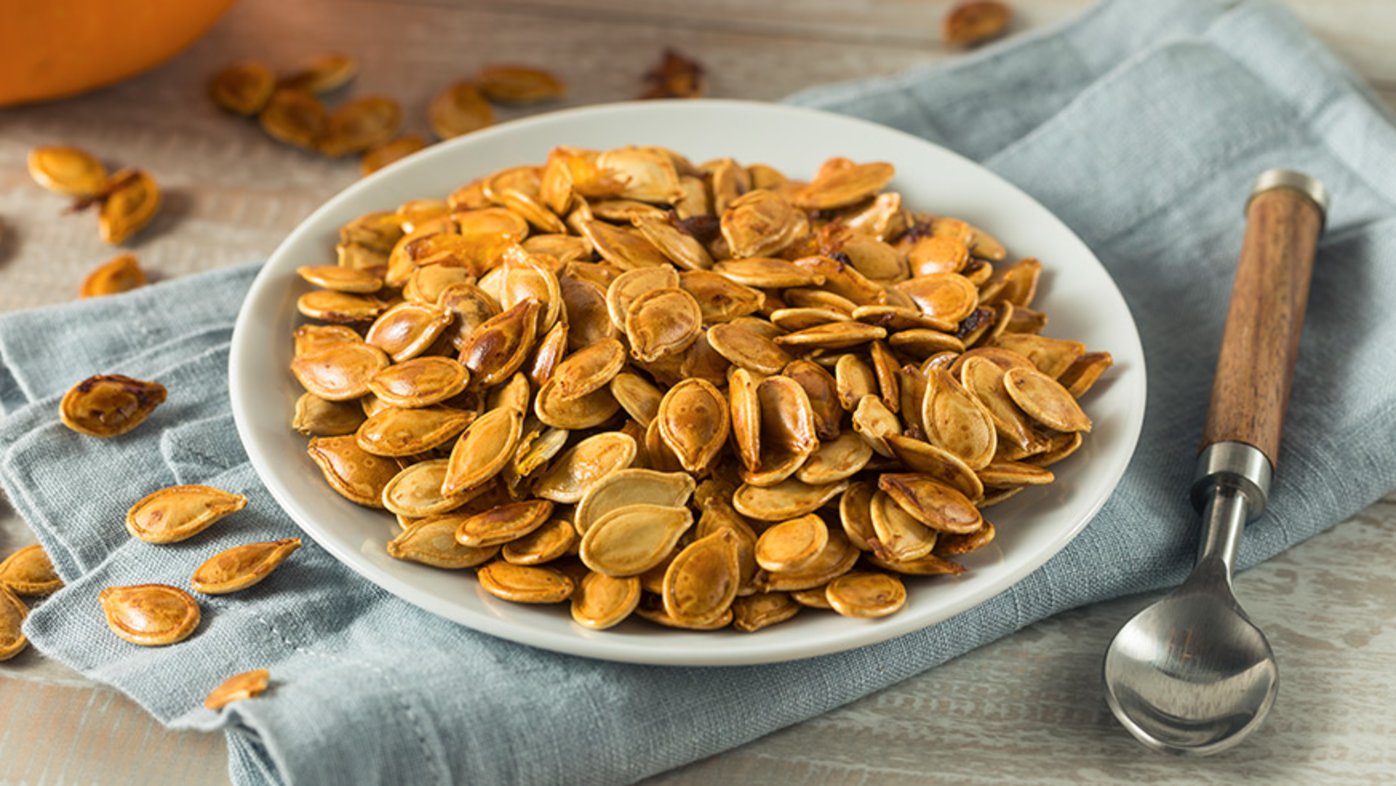
Health benefits of pumpkin seeds
Pumpkin seeds are loaded with the nutrients our bodies need.
Storing fruits and vegetables properly can make them last longer. It can also keep them from going to waste.
“Fresh produce often spoils before it is eaten,” says Lauren DeWolf, a registered dietitian and wellness education specialist with Sharp Rees-Stealy’s Center for Health Management. “The good news is storing produce properly can keep it fresher much longer.”
Store in the fridge
Most vegetables last longer when kept chilled in the refrigerator, including:
Artichokes
Asparagus
Beets
Broccoli
Cauliflower
Carrots
Celery
Corn
Cucumber
Eggplant
Green beans
Leafy greens
Mushrooms
Peas
Peppers
Radishes
Summer squash, such as yellow squash and zucchini
Turnips
To prolong freshness, place asparagus stalks upright in a glass with 1 inch of water. Mushrooms do best when kept dry in a paper bag and stored in the refrigerator. Broccoli, cauliflower, carrots and leafy greens retain moisture better when stored in a plastic bag. Without a barrier, they can dry out and wilt. Corn will not dry out as quickly when stored inside its husk.
Leave on the counter
Citrus and stone fruit, such as peaches, plums and nectarines, can be stored at room temperature or on the counter. Store these items loosely and away from sunlight, heat and moisture. However, to slow ripening, move these fruits to the refrigerator:
Avocados
Bananas
Grapefruits
Lemons
Limes
Nectarines
Oranges
Peaches
Persimmons
Plums
Pomegranates
Additionally, tomatoes can be stored at room temperature. This helps preserve their flavor and aroma.
Store in the pantry
Some vegetables are best stored in the pantry or in a cool, dark place. These include:
Garlic
Winter squash, such as acorn, spaghetti and butternut
Onions
Potatoes
Shallots
Sweet potatoes
Yams
Store separately
Apples, bananas and pears give off ethylene gas, which can make other nearby produce ripen faster. This natural process can be used strategically to quickly ripen a stubborn avocado or peach. Place the unripe produce in a paper bag with an apple or banana to ripen it faster.
However, if slow ripening and longer produce life is preferred, keep fruit stored separately from vegetables. Separate onions and potatoes, as gases from the onions will make the potatoes sprout faster, and moisture from the potatoes will make the onions turn soft.
Vegetables with leafy tops
Remove the green leafy tops from carrots, beets and radishes before storing. The tops drain water from the roots and make them spoil more quickly. Consider using the tops for root-to-leaf recipes. Carrot tops taste similar to parsley, beet tops are almost identical to chard, and radish greens taste a lot like arugula.
“Fresh produce is one of the most common items to get thrown away,” says DeWolf. “However, by practicing smart produce storage, we can reduce food waste and also save money.”
Our weekly email brings you the latest health tips, recipes and stories.